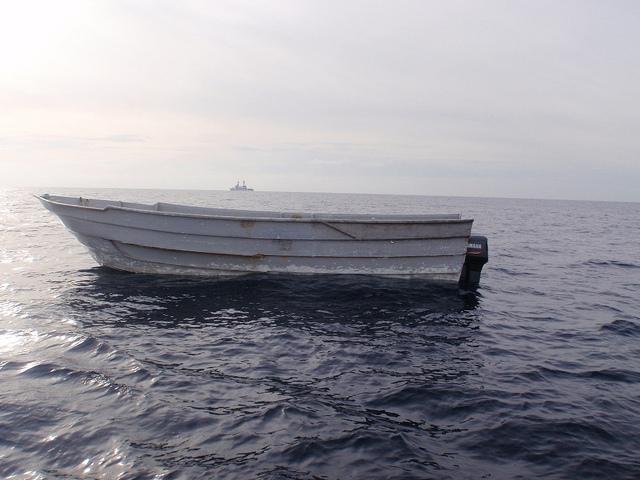Ice: a new strategy for a new Australian government
Posted By John Coyne on September 28, 2015 @ 08:31
With a new Prime Minister, it’s an appropriate time to reconsider Tony Abbott’s ‘dob in an ice dealer’ [2] hotline before things get a whole lot more difficult for Australia’s top cops.
Prior to the initiative, the amount of alleged crime reported at state and federal level far exceeded the capacity of Australia’s law enforcement agencies to respond and investigate. And now they have to reallocate resources to respond to a new hotline reporting.
A ‘hotline’ approach was a great political announcement for the Abbott government.
It presented a tangible initial deliverable for the federal government’s investment in the National Ice Task Force.
It was also a safe move. Police experience with similar programs, such as state government ‘dob in a druggie’ programs and the federal ‘national security hotline’, have shown that the public will support them.
The hotline will succeed because its key performance measures will most likely be linked to the number of seizures and arrests. With the hotline information, Australia’s cops will of course make arrests and seize drugs and cash. But with no new funding for the various agencies involved in responding to the increase in public information, this new work will come at the cost of other police work.
But will it reduce the availability of ice in Australian communities? Unlikely. Will it reduce harm? Unlikely also.
This otherwise well-intentioned idea will most likely just divert police resources to the investigation, disruption and prosecution of low level ice dealers. And it will increase the number of such dealers in Australian prisons.
In principle, I support the position presented by public health campaigner David Penington and Victoria’s drug court Magistrate, Tony Parsons [3] who argue that the focus should be on treatment, rehabilitation, education and family support.
I believe that the nation’s policy responses need to be focused on reducing harm through integrated supply and demand reduction. Focusing solely on arrests or supply reduction won’t work. But equally, a strategy that focusses on balancing treatment, rehabilitation, education and family support without arrests is unlikely to be successful on its own.
For organised crime groups (OCG) the Australia ice market offers high per-capita user demand accompanied by high and stable prices (in global terms). Every time police take out a street dealer or global kingpin there is someone ready to fill the void in the market.
In a one week period in February 2015 Customs and the Australian Federal Police, in two separate border operations, seized over 330 kilograms of methamphetamine with an estimated street value of approximately $221 million dollars.
The Australian Crime Commission regularly reports substantive increases in methamphetamine seizures, yet Australian Institute of Criminology researchers find that this isn’t having a marked impact on the drug’s domestic availability to users.
To undermine the profit motivation for participation in the Australian ice market, border agencies need to seize large proportions of the total quantity of incoming drugs. I think it would be safe to assess that, despite record seizures, stable user prices reveal border and enforcement agencies aren’t seizing increasing percentages of the total ice shipments (and its precursors) being imported into Australia.
I believe that there are disconnects between the use of seizure rates as a performance measure and the achievement of the government’s policy intent of harm minimisation. Law enforcement performance measures are forcing our border agencies to concentrate on seizing drugs not reducing supply.
This isn’t a criticism of the good work of our border and enforcement agencies. It’s a commentary on whether concentrating our strategy towards higher seizure rates, at the cost of other more innovative enforcement strategies and measures, is the best approach to supply reduction let alone harm minimisation.
Policy makers are in a difficult situation. If they don’t pursue politically sensitive increases in the number of seizures, they will be found wanting by government and the community. I don’t believe that the policy challenge need be a polar question; to seize or not too seize. Put simply new strategies should avoid using drug seizures as a police performance measure. Instead new policies should encourage police to utilise more innovative non-traditional responses: such as offshore disruptions.
As an example, Australian Crime Commission reporting highlights the role of China in the production and shipment of ice and its precursors. To achieve a substantive reduction in the supply of ice the diversion of drugs and precursors in the Chinese chemical and pharmaceutical industry needs to be addressed. To have a lasting impact on the availability of ice, police need to pursue less tangible, complex and difficult strategies to achieve this: such as disrupting drug manufacturing in China through enforcement cooperation, intelligence exchange, capacity development, and international aid.
A substantive component of the supply reduction strategy should be focused on international engagement with the Chinese government on pharmaceutical and chemical regulation and police and border security intelligence exchange.
In the next month the Australian Strategic Policy Institute will release its own report with recommendations for a strategy to address the harms caused by ice in our communities—a report that will call for a strategic approach to harm minimisation.
Article printed from The Strategist: https://aspistrategist.ru
URL to article: /ice-a-new-strategy-for-a-new-leadership/
URLs in this post:
[1] Image: https://aspistrategist.ru/wp-content/uploads/2015/09/11826229593_a2f7e4597e_z.jpg
[2] dob in an ice dealer’: http://www.smh.com.au/breaking-news-national/pm-urges-australians-to-dob-in-ice-dealers-20150816-413uk.html
[3] public health campaigner David Penington and Victoria’s drug court Magistrate, Tony Parsons: http://www.smh.com.au/federal-politics/political-news/tackling-ice-scourge-needs-more-than-police-crackdown-say-experts-20150815-gizvny.html
Click here to print.
